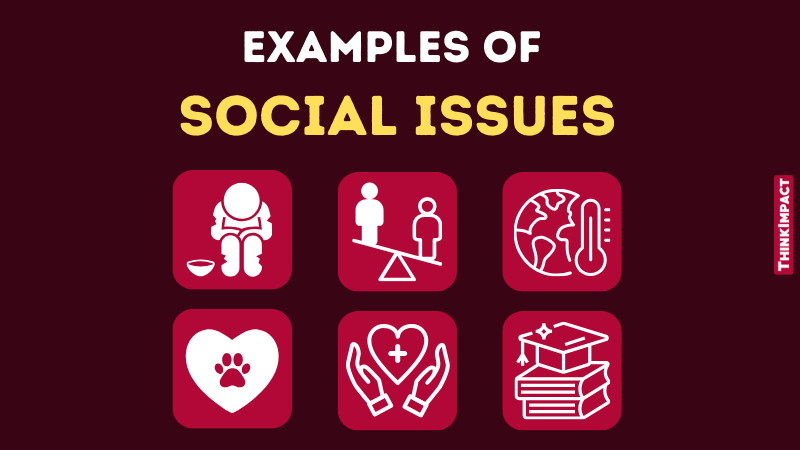From poverty and inequality to climate change and mental health, these challenges demand our attention and collective action. Understanding the statement of the problem behind these issues is crucial for devising effective solutions and fostering positive change. Let’s delve deeper into what constitutes a social issue and how we articulate its statement of the problem.
What is a Social Issue? What is a Statement of the Problem?
Social Issue: Social issues encompass a broad spectrum of challenges that affect communities, societies, and even the entire globe. These issues arise from various factors, including economic disparities, cultural differences, political ideologies, and environmental concerns. Poverty, discrimination, access to healthcare, education, and human rights violations are just a few examples of social issues that impact millions of lives worldwide.
Statement of the Problem: The statement of the problem is a critical component in addressing social issues effectively. It involves defining the issue, identifying its root causes, and understanding its implications for individuals and communities. By clearly articulating the problem statement, stakeholders can develop targeted interventions and policies to address underlying issues and promote social justice and equality.
Exploring Social Issues: A Comprehensive Overview
Understanding the Complexity of Social Issues
Social issues are multifaceted and often interconnected, making them challenging to address comprehensively. Factors such as globalization, technological advancements, and cultural shifts further contribute to the complexity of these issues. As societies evolve, new challenges emerge, requiring innovative approaches and collaborative efforts to find sustainable solutions.
Impact on Individuals and Communities
Social issues have far-reaching consequences, affecting not only individuals but also entire communities and societies. From economic hardships and health disparities to social unrest and environmental degradation, the impact of these issues can be profound and long-lasting. Marginalized groups, such as women, children, and minority populations, are often disproportionately affected, exacerbating existing inequalities.
Addressing Root Causes
To effectively tackle social issues, it is essential to address their root causes rather than merely treating symptoms. Poverty, discrimination, lack of access to education and healthcare, systemic injustices, and environmental degradation are among the primary drivers of social problems. By addressing these underlying factors, policymakers, activists, and communities can work towards sustainable solutions and positive social change.
Promoting Social Justice and Equity

Central to addressing social issues is the promotion of social justice and equity. This entails recognizing and challenging systemic barriers and inequalities that perpetuate social problems. By advocating for equal rights, opportunities, and resources for all individuals, regardless of their background or circumstances, we can create a more just and inclusive society.
FAQs (Frequently Asked Questions)
What are examples of social issues?
Social issues encompass a wide range of challenges, including poverty, inequality, discrimination, healthcare disparities, environmental degradation, and human rights violations.
How do social issues impact communities?
Social issues can have profound effects on communities, leading to economic hardship, social unrest, health disparities, and environmental degradation. Marginalized groups often bear the brunt of these challenges, exacerbating existing inequalities.
Why is addressing the statement of the problem important?
Articulating the statement of the problem is crucial for understanding the root causes and implications of social issues. By clearly defining the problem, stakeholders can develop targeted interventions and policies to promote positive change and social justice.
What role do individuals play in addressing social issues?
Individuals play a crucial role in addressing social issues by raising awareness, advocating for change, and supporting initiatives that promote equality and justice. Small actions can have a ripple effect, leading to broader social transformation.
How can communities work together to address social issues?
Communities can address social issues by fostering collaboration, building coalitions, and mobilizing resources to tackle shared challenges. By working together, communities can amplify their impact and create meaningful change.
What are some strategies for promoting social justice and equity?
Strategies for promoting social justice and equity include advocating for policy reforms, supporting grassroots movements, empowering marginalized communities, and challenging systemic injustices. Education, dialogue, and allyship are also essential components of this ongoing effort.
Conclusion:
In conclusion, social issues are complex, multifaceted challenges that demand our attention and collective action. By understanding the statement of the problem behind these issues and working together to address their root causes. We can create a more just, equitable, and inclusive society for all.
